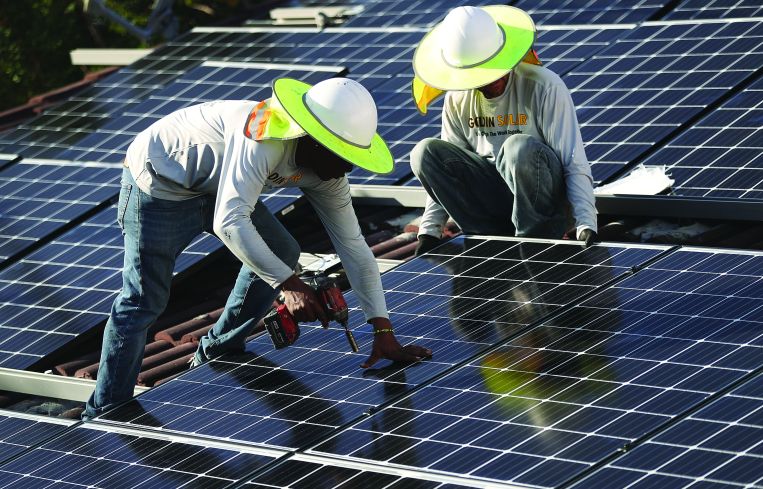NYC Planning Approves Zoning Changes to Spur Green Retrofits
By Rebecca Baird-Remba September 12, 2023 11:56 am
reprints
The City Planning Commission on Monday overwhelmingly approved a slate of zoning changes aimed at making it easier for building owners to add energy-efficient improvements or install renewable energy sources, sending the proposals on to the New York City Council for a vote.
The commission approved the suite of 17 citywide zoning updates by a vote of 12 to 1, with only Commissioner Alfred Cerullo — who also serves and the president and CEO of the Grand Central Partnership — voting no.
“It’s clearer than ever that the impacts of climate change are upon us,” said Dan Garodnick, who chairs the commission and is the director of the Department of City Planning. “We can’t remain on our present course. We need to do everything we can to get us firmly on the path to sustainability. This initiative is the boldest, most thorough update of our zoning resolution related to our environment in its history.”
The proposals, collectively known as “City of Yes for Carbon Neutrality,” will permit more rooftop solar panels in residential and commercial districts, allow large-scale battery storage in more parts of the city, make it easier for homes and businesses to compost and recycle, and double the amount of land in the city where electrical vehicle charging can occur.
A few commissioners worried that the state’s planned changes to the electric grid would not come online soon enough to offset the increased power demand created by more electrified buildings, which will largely be driven by the city’s 2019 decarbonization legislation, Local Law 97.
“I think the public deserves more information regarding the energy projections used by the city,” said Commissioner Juan Osorio. The zoning changes “assume that the grid will have renewables in place that it will require when the additional demand created by electrification of buildings comes into play.”
Osorio added that “some studies are flagging potential shortages that can exacerbate our current reliance on polluting sources of energy, like peaker plants.” Peaker plants run only when there is high demand for energy, and are usually powered by fossil fuels.
The proposals were released by City Planning in April. They are designed in part to help the owners of 50,000 buildings that fall under Local Law 97 — which requires landlords to start reducing energy usage next year or show concrete steps toward that goal — comply with the requirements.
The zoning changes received support from 25 of the city’s community boards, as well as the borough presidents of Brooklyn, Queens, Bronx and Manhattan. The City Council must vote on them within the next two months before they go to Mayor Eric Adams for approval.
Rebecca Baird-Remba can be reached at rbairdremba@commercialobserver.com.



